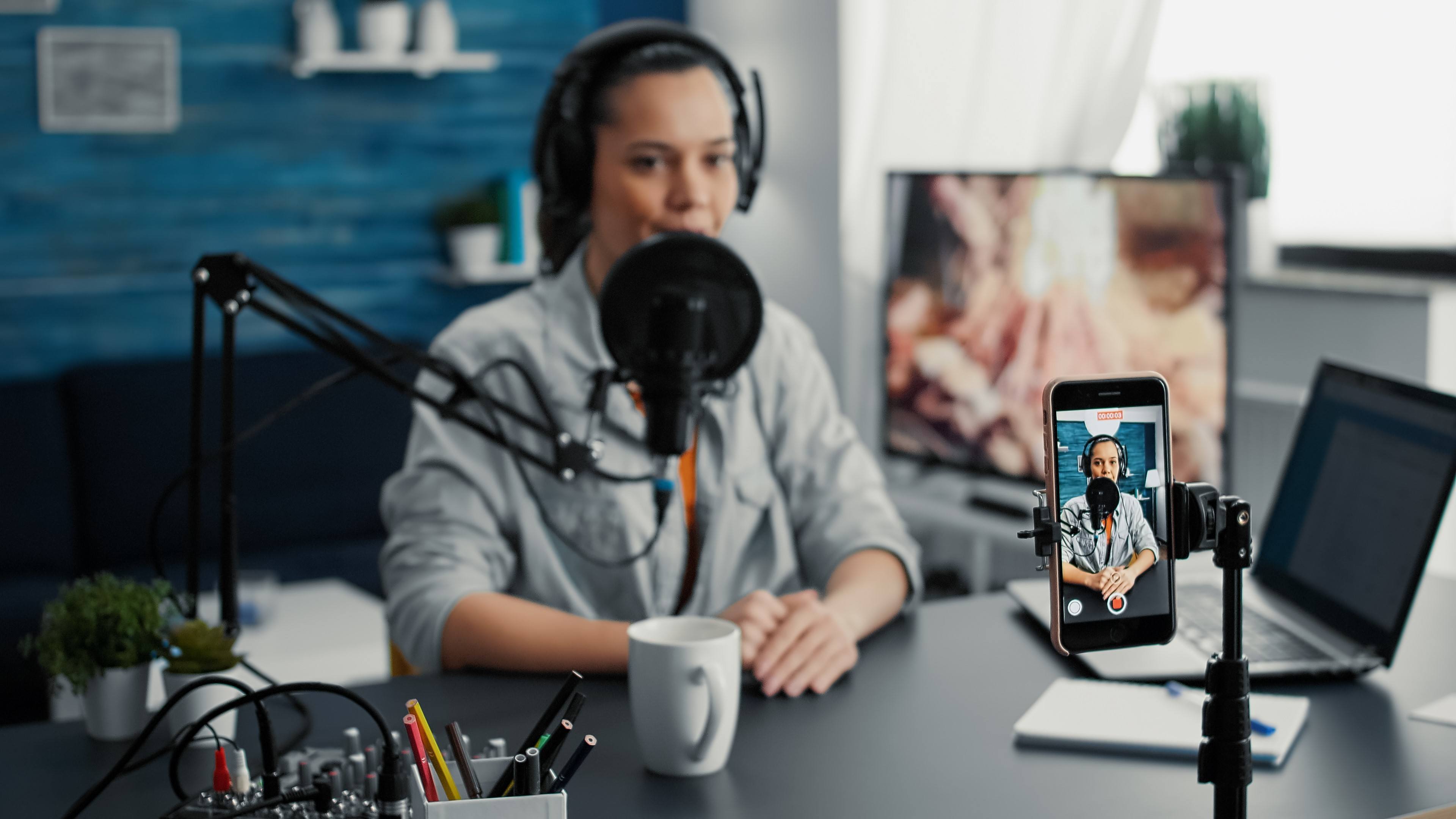
BGSU leads first-of-its-kind global United Nations study into motivations, ethical standards of digital content creators
Estimated Reading Time:
Researchers at BGSU complete first UNESCO-funded project at the University
A project commissioned by the United Nations Educational, Scientific and Cultural Organization (UNESCO) sought out the expertise of Bowling Green State University faculty, students and alumni to better understand the complicated but influential world of digital content creators on a global scale in a first-of-its-kind study.
UNESCO chose the Global Social Media Influencer Research Lab (GSMI) at BGSU founded by Professor of Research Excellence (2021-24) Dr. Louisa Ha to study the motivations and ethical standards of content creators, becoming the first time BGSU received UNESCO funding for a research project.
Ha and her team anonymously surveyed more than 500 content creators across 45 countries and eight languages who post public content and meet the “nano-influencer” threshold with more than 1,000 followers, then conducted in-depth follow-up interviews with 20 of the surveyed creators.
The findings, which were released Nov. 26, revealed that content creators typically have a clear mission and good intentions, but researchers found significant gaps in fact-checking and determining source credibility.
Nearly two-thirds of respondents said they did not check for accuracy before sharing content with others.
Further, creators often incorrectly correlated popularity with credibility, a significant issue with online misinformation.
“One of the major discoveries is that many of these creators equate popularity – the number of views and likes – as credible sources,” Ha said. “If a post has a lot of likes and views, they view it as credible, even if it may be wrong information.”
Ironically, researchers found many content creators started with pure intentions to share information or expertise with others, though most aren’t treating the role as a full-time career.
Just more than half of surveyed content creators said they accept any sort of sponsored content agreements, and less than one-third of those sampled said content creation was their main source of income.
Researchers discovered information verification proved to be the major gap for content creators as they evaluated what to share with their audiences.
“When they share content with other people, 62% said they did not check the accuracy,” Ha said. “That is a major issue because it presents the possibility of disseminating misinformation.”
UNESCO asked for and accepted a proposal from GSMI, which was born in the BGSU School of Media and Communication and is mostly composed of faculty as well as current and former students of SMC graduate programs.
- Mohammad Abuljadail ’17
- Yang Yang ’22
- Halima Lul Ali, BGSU Ph.D. student
- Osama Mohammed Bahassan, BGSU Ph.D. student
- Hyacinth Bangero, BGSU Ph.D. student
- Arnab Biswas, BGSU Ph.D. student
- Madison Clatt, BGSU Ph.D. student
- Jisha Jacob, BGSU Ph.D. student
- Faiswal Kasirye, BGSU Ph.D. student
- Man Luo, BGSU Ph.D. student
- Shudipta Sharma, BGSU Ph.D. student
- Kelsey Lynn Zook, BGSU Ph.D. student
- Dr. Marta Mensa Torras, assistant professor, University of North Texas
The research venture became a leader in academia and beyond for understanding digital content creation, which includes but is not limited to social media influencers.
Ha said she founded GSMI to study this field because she saw the evolutions in advertising, where it became easier and easier for consumers to ignore ads and harder for advertisers to be successful in traditional mass media settings.
“I saw that advertising was going to evolve in new forms – not just the traditional form of advertisements – but more natural, editorial types of content that people like to watch and don’t see as advertisements,” she said. “People want more trustworthy sources, especially when they’re making purchase decisions.”
Content creators stepped in as a reasonable alternative to standard ads – not as a corporate entity interrupting programming to sell something, but as an outside voice that consumers could seek out when they wanted more information on a topic.
Naturally, this method established credibility between content creators and audiences, which is one of the reasons it’s important to understand how and why creators evaluate information, Ha said.
“People can learn from advertising in a certain way, but only when advertisements are successful, and many advertisements are unsuccessful because they’re seen as annoying pieces of information,” Ha said. “A content creator is talking about things that are of interest to the audience, but in a convincing way where they can recommend products and brands to consumers.”
Ha said GSMI plans to expand its research on a global scale, while UNESCO is exploring ways to help content creators become stronger fact-checkers.
Social media is a key connection between consumers and information, Ha said, so additional resources for creators could make a difference in fighting online misinformation.
“We want content creators. They are real people who have a lot of passion, but we know they have some constraints and they’re not doing too well in terms of fact-checking and verification,” Ha said. “But in general, they are usually well-intentioned. They just need guidance.”
Related Stories
Media Contact | Michael Bratton | mbratto@bgsu.edu | 419-372-6349
Updated: 12/03/2024 01:04PM




